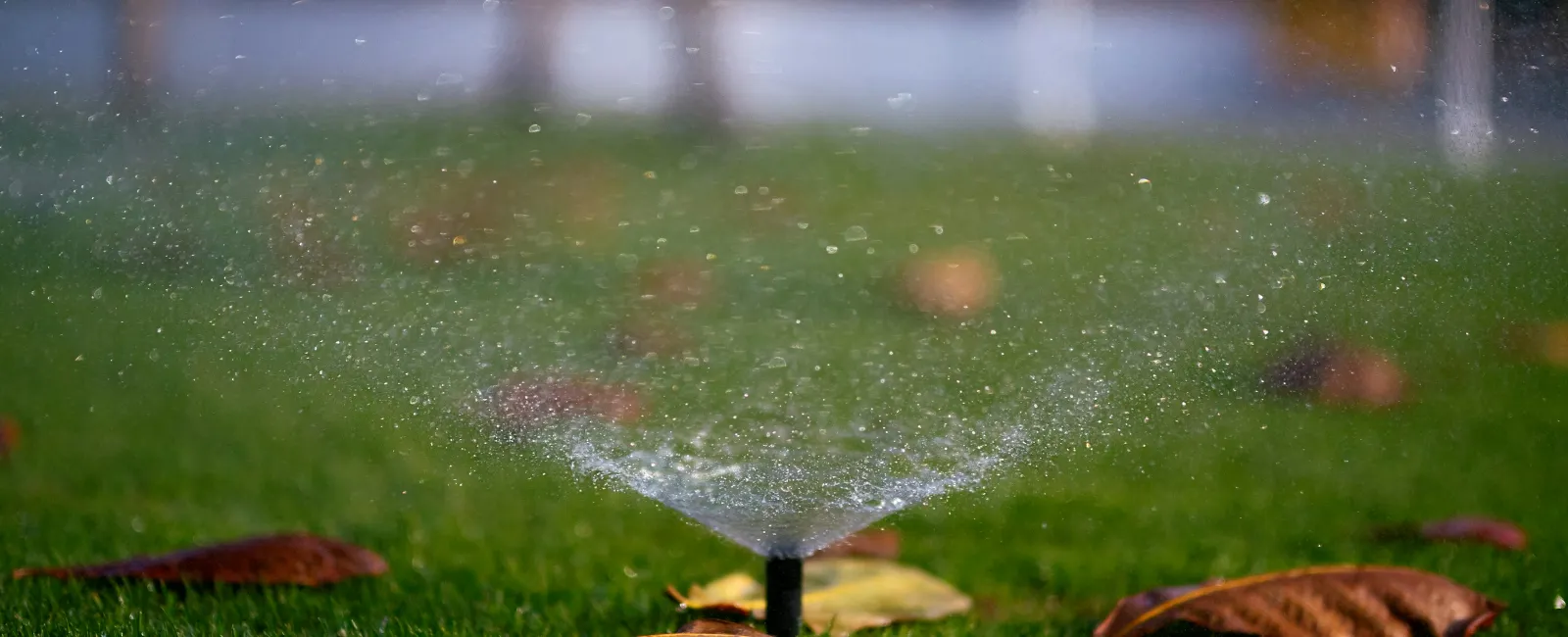Maintaining a healthy lawn requires more than just regular mowing and fertilizing. Proper watering practices are crucial for optimal growth, resource conservation, and a vibrant, lush appearance. However, many homeowners unknowingly sabotage their lawns by watering at the wrong time, leading to water waste and unhealthy grass. This can create unsightly patches and higher water bills, frustrating efforts to maintain a lush, green lawn. Fortunately, by adjusting your watering schedule to align with nature's rhythms, you can promote healthier growth and conserve resources.
Why Timing Matters
Timing is crucial when it comes to watering your lawn. Watering at the right time ensures that the grass absorbs maximum moisture and nutrients while minimizing water waste. Different times of the day affect water absorption and grass health in various ways:
- Evaporation Rates: Watering during the hottest parts of the day leads to higher evaporation rates, reducing the amount of water that reaches the grassroots. This results in more water being used and less benefit to the lawn.
- Soil Temperature: Cooler soil temperatures in the early morning allow water to penetrate deeper into the ground, promoting more vigorous root growth and healthier grass.
Understanding the impact of timing on water absorption and conservation can help you maintain a thriving lawn.
Best Times to Water Your Lawn
To ensure your lawn receives adequate moisture without wasting water, it's essential to water at the correct times:
Early Morning (5 AM to 9 AM)
Watering your lawn in the early morning is ideal because:
- Lower Temperatures: Cooler temperatures mean less evaporation, allowing more water to reach the roots.
- Reduced Wind Speeds: Calm winds in the morning minimize water loss due to wind drift.
- Dry Grass Blades: Grass blades have time to dry before evening, reducing the risk of fungal diseases.
Late Afternoon (4 PM to 6 PM)
If early morning watering is not possible, late afternoon is a suitable alternative:
- Moderate Temperatures: Temperatures begin to drop, reducing evaporation rates.
- Avoid Evening Watering: Too late can leave grass wet overnight, increasing the risk of fungal growth and disease.
By choosing the right time to water, you can ensure your lawn remains healthy and vibrant.
Factors Affecting the Watering Schedule
Several factors influence the best watering schedule for your lawn:
Climate Considerations
- Arid vs. Humid Climates: Due to higher evaporation rates, more frequent watering may be necessary in arid climates, while less frequent watering may be required in humid climates.
- Seasonal Variations: Adjust your watering schedule according to the season, as temperature and rainfall patterns change throughout the year.
Grass Type
Different grass types have varying water requirements:
- Cool-Season Grasses: Typically require more water and benefit from early morning watering.
- Warm-Season Grasses: Often need less frequent watering and can tolerate drought conditions better.
Soil Type
The type of soil in your lawn affects water retention and drainage:
- Sandy Soil: Drains quickly, requiring more frequent watering.
- Loamy Soil: Retains moisture well, reducing the need for frequent watering.
- Clay Soil: Drains slowly and retains water, requiring careful monitoring to avoid overwatering.
Considering these factors, you can tailor your watering schedule to suit your lawn's needs.
Watering Techniques
Implementing effective watering techniques ensures your lawn receives adequate moisture without wasting water:
Irrigation Systems
- Automatic Systems: These irrigation systems provide consistent watering but require adjustment based on weather conditions.
- Manual Systems: Offer more control but require regular monitoring and adjustment.
Tips for Efficient Sprinkler Use:
- Ensure sprinklers are correctly aligned to avoid watering sidewalks and driveways.
- Use timers to schedule watering during optimal times.
Hand Watering
Hand watering is suitable for smaller lawns or areas that need special attention:
- Targeted Watering: Allows for precise application to specific areas.
- Flexibility: Adjust watering based on immediate conditions.
Using the proper technique can maximize water efficiency and promote a healthier lawn.
Common Mistakes and How to Avoid Them
Avoid these common watering mistakes to maintain a healthy lawn:
- Overwatering can lead to shallow root growth, increased disease risk, and wasted water.
- Solution: Water deeply but infrequently to encourage profound root growth.
- Underwatering: Causes stress and browning of grass.
- Solution: Monitor soil moisture and adjust the watering frequency as needed.
- Misuse of Sprinklers: Inefficient sprinkler systems can waste water and lead to uneven coverage.
- Solution: Regularly check and adjust sprinkler systems for optimal performance.
By avoiding these mistakes, you can ensure your lawn remains healthy and vibrant.
Benefits of Proper Lawn Watering
Proper lawn watering offers numerous benefits:
- Environmental Benefits: Reduces water waste and promotes sustainable lawn care practices.
- Improved Lawn Health: Encourages profound root growth, leading to a lush, green lawn.
- Cost Savings: Efficient water use reduces water bills and conserves resources.
By following the guidelines outlined in this article, you can enjoy a beautiful lawn while minimizing environmental impact and costs.
Conclusion
Proper lawn watering is essential for maintaining a healthy, vibrant lawn while conserving water and reducing costs. You can optimize your lawn care routine by understanding the best times to water, considering factors like climate and soil type, and avoiding common mistakes. Assess your current practices and make the necessary adjustments to enjoy the benefits of a well-watered lawn.
- Water your lawn early in the morning to reduce evaporation and minimize disease risk.
- Adjust watering times based on climate, grass type, and soil conditions for optimal results.
- Use efficient watering techniques to conserve water and improve lawn health.
- Avoid common mistakes like overwatering and improper sprinkler use to maintain a lush lawn.
- Proper lawn watering leads to environmental benefits and cost savings.





